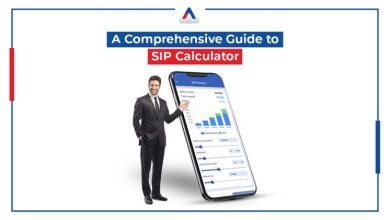Credit Card vs. Debit Card Usage

Credit cards and debit cards are integral parts of modern financial systems. While both cards offer convenience and security over carrying cash, they have distinct features and uses. Knowing such distinction is essential for making better financial decisions.
A credit card such as IDFC credit card or variant of this card i.e., IDFC WOW Credit Card, is a product that permits you as a user to get funds of a particular limit for buying products and services with just a swipe or through online mode. The borrowed funds must be paid back within the due date.
In contrast, a debit card is associated with the user’s account. It permits spending of just the amount that is in your bank account. Debit cards are prudent for those who are looking to spend within their limits.
Distinctions between credit cards and debit cards
Interest charges
Credit cards levy interest on balances that are not paid by the end of the cycle. This interest can accumulate, increasing the total amount owed. Debit cards do not incur such charges since they use funds already in your bank account.
Credit source
Credit cards work on a principle of borrowed money offered by the issuer, permitting you to spend funds you do not presently have in your account. On the other hand, debit cards draw directly from prevailing bank account funds, restricting spending to what you own.
Spending limit
Credit cards have a preset spending limit, which can differ depending on credit records and other parameters. This limit is the maximum money you can get. Debit cards have a limitation and are limited by the balance available in your account.
Building credit history
Using a credit card responsibly and paying bills on time helps build a positive credit history, essential for loan approvals and favourable interest rates. Debit card usage does not impact your credit history.
Reward points
Many credit cards, like the IDFC WOW, offer reward points for purchases, which can be redeemed for various benefits like travel, merchandise, or cashback. Debit cards typically lack such reward programs.
Bill payments
Credit card users receive monthly bills for their purchases and have the option to pay the full amount or a minimum due. Debit cards automatically deduct the amount spent from your bank account, with no monthly bill.
Cash withdrawals
Withdrawing cash using a credit card usually incurs fees and higher interest rates from the day of the withdrawal. Debit cards allow free cash withdrawals up to the account balance.
Overdraft facility
Some credit cards offer overdraft facilities, allowing users to exceed their credit limit under specific conditions. This feature is not available with debit cards.
Foreign transactions
For international transactions, credit cards often offer better exchange rates and additional security features compared to debit cards, making them more favourable for travellers.
Cashback offers
Credit cards often provide cashback offers on specific purchases, which is a way to save money on transactions. Such offers are less common with debit cards.
Annual fees
Some credit cards charge annual fees in exchange for additional benefits or higher rewards. Debit cards rarely have such fees.
Insurance perks
Many credit cards come with added perks like travel insurance and purchase protection, which are not typically available with debit cards.
Minimum due payment
Credit card users have the option to pay a minimum amount each billing cycle, offering flexibility. With debit cards, the full transaction amount is immediately deducted from your account.
Emergency credit
Credit cards can serve as a crucial source of funds in emergencies, especially when immediate cash is not available.
Easier online transactions
Credit cards are generally more widely accepted and preferred for online transactions due to better security features and ease of use.
Security deposits
Hotels, rental services, and other entities often prefer credit cards for security deposits as they guarantee a method of charging for any damages or unpaid services.
Credit utilisation ratio
This is a key factor in determining your credit score, reflecting the amount of credit you are using compared to your total available credit. This concept is irrelevant for debit card usage.
Credit score impact
Late payments on credit card bills can negatively impact your credit score, whereas late payments with a debit card do not have this effect.
Payment flexibility
Credit cards provide the flexibility to choose how much to repay each month, as long as the minimum payment is met.
Easier dispute resolution
Credit cards offer better fraud protection and easier dispute resolution in case of unauthorised transactions or billing errors.
Automatic payments
Credit cards allow for the setup of automatic payments for recurring bills, which can be convenient and help avoid late payment fees.
Interest-free period
Credit cards typically offer an interest-free period (grace period) between the purchase date and the payment due date, allowing users to manage cash flow more effectively.
Linked account
Debit cards are directly linked to your bank account, making funds immediately accessible, whereas credit cards are standalone lines of credit not directly tied to your bank account balance.
Sign-up bonuses
Many credit cards, including offerings like IDFC WOW, come with attractive sign-up bonuses and introductory offers.
Credit limit increases
Responsible usage and timely payments can lead to increased credit limits on credit cards, offering more financial flexibility.
Who should use which credit card?
Online shoppers
IDFC Credit Card for exclusive online shopping deals.
Frequent travellers
IDFC WOW Credit Card for travel rewards and insurance benefits.
High-spenders
IDFC WOW Credit Card for higher credit limits and rewards.
Business professionals
IDFC WOW for travel perks and lounge access.
Individuals building credit
IDFC Credit Card for manageable limits and easy monitoring.
Students
IDFC Credit Card for lower limits and basic features.
Tech-savvy users
IDFC WOW for advanced security features in online transactions.
Luxury shoppers
IDFC WOW for premium services and higher spending limits.
Cashback seekers
IDFC Credit Card for cashback on everyday purchases.
Budget-conscious users
IDFC Credit Card for its no-frills, straightforward benefits.
In summary, while both credit and debit cards have their place in the financial toolkit, the choice between an IDFC Credit Card and a debit card hinges on individual financial habits, needs, and goals. Whether it’s building credit, earning rewards, or managing day-to-day expenses, understanding these differences empowers consumers to make smarter financial decisions, paving the way for a secure and prosperous financial future.



